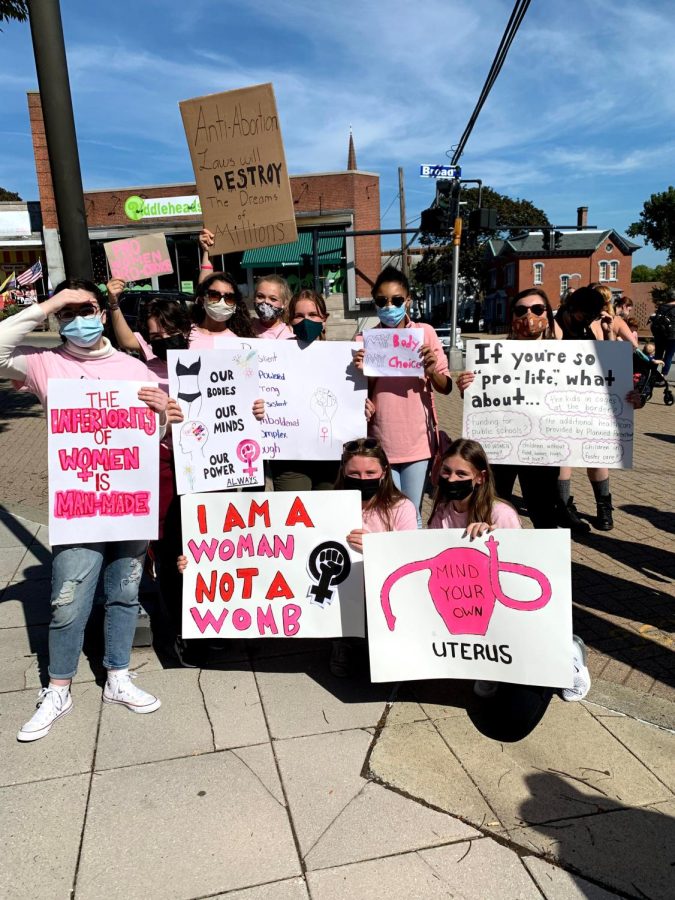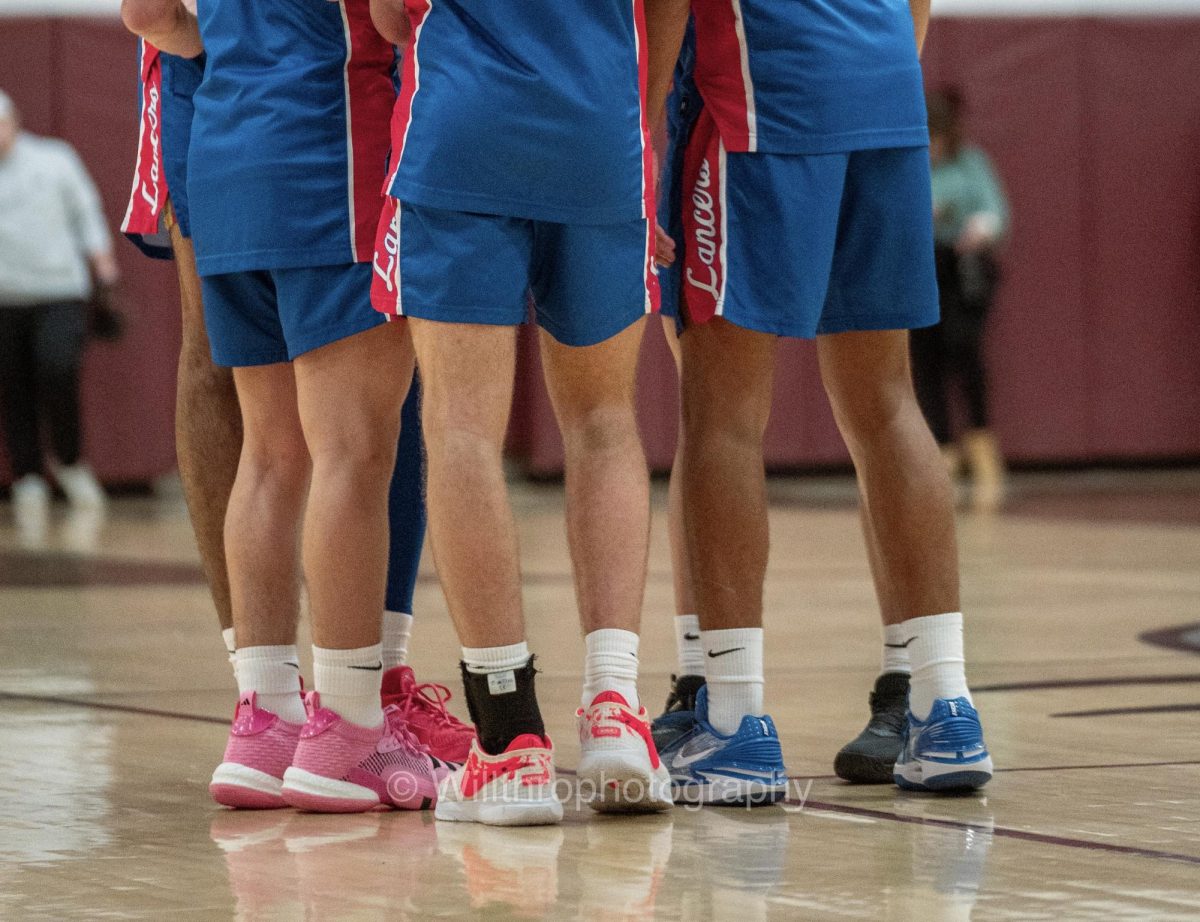The End of Roe V. Wade?
June 10, 2022
Justice Samuel Alito is considered one of the most conserative justices on the Court and described himself as a “practical originalist”. Originalism is a theory of the interpretation of legal texts, including the Constitution, and this group believes that the interpretation of the rules laid down in the Constitution shouldn’t change as time passes. Alito was responsible for writing the majority opinion for the Dobbs v. Jackson Supreme Court case, which was leaked and later published by Politico on May 2. The original release date was supposed to be in early summer, so the ruling hasn’t been put into effect yet. If it does go through, the case would overrule the monumental Roe v. Wade ruling from 1973.
The original Roe v. Wade case used an important precedent from the Griswold v. CT case, which used the 1st, 3rd, 4th, 5th, and 9th amendments to determine that people have “right to privacy”. Although this right isn’t expressly stated in the Bill of Rights, the Justices reasoned that it was supported by ones that were expressly stated, affirming that people have implied rights. This decision established that the state shouldn’t be able to legislate what happens in private for people.
Norma McCorvey, who went through the case under the name “Jane Roe”, was living in Dallas, Texas without financial security or support from others. When she found out she was pregnant, she knew that she would be unable to support the baby, but she also didn’t have the money to travel out of state to get a legal abortion. At the same time, two recent University of Texas Law School graduates, Linda Coffee and Sarah Weddington, were working to challenge the state law, claiming that it was “cruel” and “inadequate,” especially for poor women. The opposing attorney, Henry Wade was the Dallas County district attorney who enforced the Texas abortion law. The case started in a three-judge federal panel which struck down the Texas law claiming that it was “vaguely worded” and violated the right to privacy established by Griswold v. CT.
Upset by the verdict, Wade appealed the decision in hopes to get the law upheld. Roe’s lawyers also appealed to a high court because the court dismissed their request for injunctions against enforcement of the Texas law. The Supreme Court agreed to hear the case in early 1937 but held off on oral arguments until two other cases were resolved. Finally, on December 13, 1971, the arguments began. Despite this, a verdict wasn;t issued until 1973 due to the appointment of two new justices to the bench. The other justices felt like the newcomers couldn’t vote before they heard the arguments, and so the second round of debate occurred on Oct. 11, 1972.
Ultimately, the court ruled that to allow abortion up until the baby is considered “viable”, or it would be able to survive outside of the womb. The majority opinion, written by Justice Harry Blackmun, said “This right of privacy . . . is broad enough to encompass a woman’s decision whether to terminate her pregnancy.”
Today, another landmark Supreme Case challenges the previous ruling. The case started based on a 2018 Mississippi law, House Bill 1510, the Gestational Age Act. This legislation outlawed abortion after 15 weeks “except in a medical emergency or in the case of a severe fetal abnormality”. The law would also have no exemptions in cases of rape or incest. The Act was quickly challenged by Jackson Women’s Health Organization, Mississippi’s only abortion clinic.
Starting in U.S. District Court for the Southern District of Mississippi, Judge Carlton W. Reeves ruled for the clinic. He wrote that viability of the fetus begins between 23 and 24 weeks, meaning that the state had “no legitimate state interest strong enough, prior to viability, to justify a ban on abortions”. The state appealed to the Fifth Circuit, who agreed with Reeves, voting 3-0. Mississippi petitioned its appeal of the Fifth Circuit decisions to the Supreme Court in June 2020, with a focus on three questions from the appeals process. When the court accepted the case, they zeroed in on one question: “Whether all pre-viability prohibitions on elective abortions are unconstitutional.” The arguments were made December 1, 2021, and the verdict was supposed to be released in late June or early July 2022.
Within hours of Politico publishing the leaked draft, both sides of the spectrum jumped into motion, pushing for their views to be officialized. Both abortion rights and anti-abortion protests quickly gathered around the Supreme Court. The Supreme Court confirmed the draft’s authenticity, but cautioned that “it does not represent a decision by the Court or the final position of any member on the issues in the case”.
The Democrats are largely against overturning Roe v. Wade. President Biden said “This is about a lot more than abortion. What are the next things that are going to be attacked?” when talking to reporters at the White House. “Because this MAGA crowd is really the most extreme political organization that’s existed in American history, in recent American history.” Caitlin Loehr was one of the protesters outside the Supreme Court who said, “I think that women should have the right to choose what to do with their bodies and their lives. And I don’t think banning abortion will stop abortion. It just makes it unsafe and can cost a woman her life”.
On the other side of this debate is the anti-abortion group. Former Vice President Mike Pence praised the draft saying “We will hope and pray that that draft opinion soon becomes the majority opinion of the Supreme Court of the United States,” during a speech in South Carolina. One of the protestors claimed that, “Abortion is not health care, folks, because pregnancy is not an illness.”
When the two sides met during protests, they were generally peaceful, but tensions were high between the two groups.
Here at WHS many students are feeling uneasy about the possibility that Roe v. Wade could be overturned by the Supreme Court. Many students feel a sense of fear over the possibility that their rights could be taken away. Samantha Seidel, senior, says, “My first reaction was fear. Not just for me, but for all the people in the US that will be affected by this” Beyond just fear many students feel a sense of anger towards the adults of the country who hold the power. Alizae Gaston, senior, says she feels “absolute anger.” Additionally, she comments, “The absolute apathy not just a person but a court could have to the possible suffering of a person with a womb is astonishing.” Danielle Nykyforchyn says, “I was in shock initially and then disgusted that it was an actual thought to overturn Roe.”
Although there are differing positions on abortion and Roe V. Wade the students at WHS are passionate about what they believe in. Seidel says, “My position on this matter comes from not only thinking about the health and well being of the people in the country, but also knowing people should have the right to do whatever they need with their bodies.” Gaston simply begs the question “In a country thats gung ho about freedom why the h**l are they taking ours away?” Nykyforchyn comments, “I think that the government should not be able to regulate a woman’s or any person’s body against their own will.”






